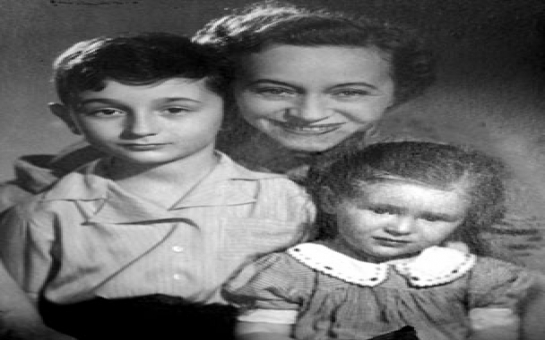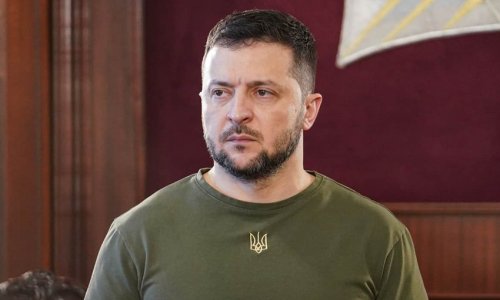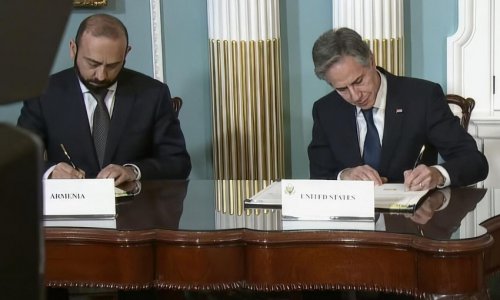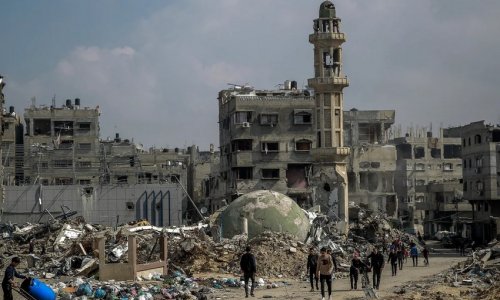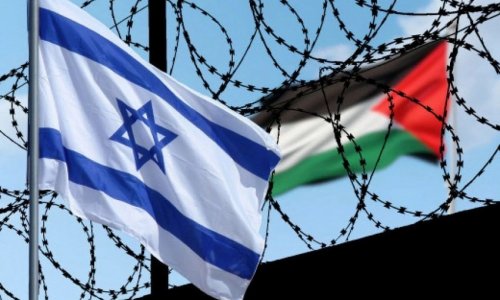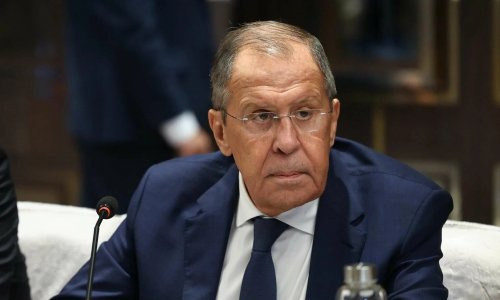By Dany Mitzman FlorenceIn 1943, Italy officially changed sides in World War Two, making peace with the Allies against Nazi Germany. It was the beginning of a new chapter in the life of one little Jewish boy in Florence, Marcello Buiatti, whose family suddenly had to go into hiding.Via Faenza - a pedestrian street, five minutes' walk from Florence's main train station. Standing outside number 43, Marcello Buiatti takes in the surroundings. It has hardly changed in 70 years.A professor of genetics at Florence University, Buiatti was then a five-year-old boy. He remembers paratroopers floating down into the city in September 1943, when Italy signed an armistice with the Allies."Everybody was happy because we thought it was Allied troops coming down and saving us from the Germans, but it was not," he says.He was with his mother - a Jew born in Poland and educated in Prague - at his father's office in the centre of town near the River Arno. Fortunately his father, a former military man, had used his connections to plan for this eventuality.The house in Via Faenza - owned by a Fascist who rejected ant-Semitism - was the ideal hiding place. An empty house with a chapel attached, built for the Templars in the 12th Century. Who would suspect it housed Jews?Two other Jewish families joined the Buiattis - a Hungarian friend and his son, and an elderly couple with two older boys who left to fight with the Resistance. Soon afterwards, Marcello's Polish cousin, "Aunty" Chaja, arrived, having escaped with the help of a partisan from an Italian concentration camp.While little has changed on the outside, the first-floor apartment where they all lived looks very different today. For the last 40 years, the building has been home to the Lorenzo de' Medici Italian International Institute, offering culture and language courses to foreign students. The kitchen and Marcello's bedroom are now administrative offices. The other rooms are classrooms.But certain features bring memories flooding back. A small fresco painted in an alcove makes Marcello's eyes shine in recognition. "I remember this angel painted in this wall. My bedroom must have been just here. I remember it as a flash. I keep having flashes."At times disorientated, Marcello gradually regains his bearings. The office next to the angel alcove is the room they used as a kitchen. He remembers that they had a stove but not very much to eat. When they finished the reserves brought from his grandparents' farm in Friuli, north-east Italy, the partisans would bring them essential supplies."There was a priest too. He knew we were Jewish. He sent little packages of edible things and he helped us. He sent them over the roof. The roof is always useful in these cases!"Marcello laughs, remembering another detail about this room - for a while they kept a live lamb here."But nobody knew how to kill him, nobody wanted to kill him. Fortunately, that partisan who had saved my mother's cousin came visiting. He saw that lamb and said 'Why don't you eat him?'"'I can't kill him,' said my father. So he killed him and we ate it. I remember that it was fantastically good."Marcello also remembers the special job he had to do every evening after supper."I was supposed to turn on the radio at nine o'clock to listen to the Allied radio, who at that time always sent encrypted messages for the Resistance. And my father heard them and told the other people of the Resistance in Florence. So it was quite an important place, our house, for we were spreading the news to several groups of partisans."Partisans would often come and go from the house but, for Marcello, one was particularly special - a woman who taught him to read and write."I have a wonderful memory of that lady. She would come at night. Late in the evening because it was dark. She could sneak into the house. She was very, very brave. She was a young lady, very beautiful, so I fell in love with her. It was a terrible thing when I heard that she had been killed by a bomb."There were frequent bombings while they were in hiding, during which the families would shelter in the chapel downstairs. Today, it has been restored but at the time it was a dusty, dingy, untidy place. Although he was rarely afraid during air raids spent in the chapel, Marcello does remember one terrifying episode when a German officer came in."The Nazi entered from this door here, the front door of the chapel. And we were all lining that wall there. My mother became pale immediately, she was terribly scared. She squashed against the wall because she had blonde hair but she looked Jewish. This officer came inside. He thought we were just there to avoid bombs and said, 'Don't worry, the bombing is ending,' and smiled and went away. I don't know how nobody fainted."Marcello laughs at the absurdity of it."He probably would have got a medal, for we were many Jews and partisans - 10, 12 people hiding in the place."Only one other episode truly frightened the young Marcello - the German bombing of all Florence's bridges apart from the Ponte Vecchio."We were in a large room, all sleeping there, and we heard the walls trembling because there were many bridges so it was very strong. And I remember trembling in my bed because the whole house was trembling like happens with an earthquake."But, for the most part, Marcello says life in hiding was neither scary nor frustrating. On the contrary, he recalls it as a very happy time. Reminiscent of Roberto Benigni's film, Life is Beautiful - in which a father protects his young son from the horrific reality of life in a concentration camp by pretending it is a game - Marcello's parents maintained an atmosphere of fun and adventure for their little boy throughout."They managed not to show to me the bad side of what was happening," he says. "I was very seldom scared. I had the feeling that I was a very important person, and that is very important for a kid. My life was really beautiful here in this period. I have good memories."The happiest was the birth of his little sister, Eva, on 12 April, 1944. In spite of five air raid alarms that day, they stayed upstairs while a midwife in the Resistance helped deliver the baby."It was a wonderfully joyful moment for all of us because another human being was born. We were not supposed to have another - the Germans would have killed her," he says.The baby's birth could not be registered but there were far more pressing issues to deal with."We didn't have a crib! And the first night she slept in a drawer. She was very small!"One evening when it was dark, my father and I went to the market here and bought a sort of basket where she stayed for the whole time."That was one of the only times Marcello set foot outside the house until Florence's liberation in August 1944.Entering a room with a stone step beneath the window, Marcello remembers standing on it to look out as the partisans who liberated the city came into town. But the view seems different from the one in his memory... until he squats down to look out from a five-year-old's perspective."I was here and I was looking into the street. Everybody was waving and was happy. The partisans were marching and singing. The Fascists were shooting from that house."Marcello points to the roof of the building opposite, remembering how his mother whisked him away from the window when she saw a sniper firing from it. Days later, he was back at the window, watching the Allied troops enter the city."That actually was the Eighth Army, whose head was Montgomery. The first here were the Sikhs that I remember very well because they had turbans and long black beards. Then just after them, the Jewish Brigade arrived. And in the Jewish Brigade we had two of my mother's cousins."Avraham and Zvi were the only two members of their family to escape death in the concentration camps, having fled from Prague to Palestine before Hitler's arrival. They still live in Israel where Marcello has often visited them. He has never forgotten how they arrived in Florence just in time to save his life."I was very ill - I had typhus because the water was not good here. Fortunately they came, because they had quinine and they saved me! I was very lucky.""Lucky" is a word Marcello uses often. Standing at that window, 70 years on, his face is awash with emotion.
"I feel moved, very moved... It's very important to remember, very important to tell other people what happened. Many people were killed in these times. Our situation was rare. And I'm very, very lucky to be alive."
(BBC World)
ANN.Az

